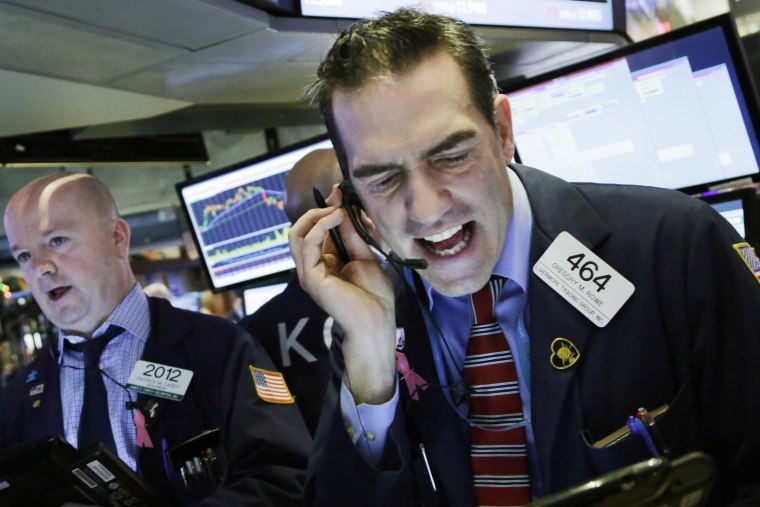The stock market shattered yet another milestone Wednesday, with the Dow Jones Industrial Average reaching 22,000 points for the first time.
The 131-year-old index received a 50-point boost from Apple, whose shares saw a 6 percent hike after Tuesday’s strong earnings report.
“Stock Market could hit all-time high (again) 22,000 today,” President Donald Trump had tweeted early on Tuesday morning, as stocks approached the milestone figure. “Was 18,000 only 6 months ago on Election Day. Mainstream media seldom mentions!”
Markets have been on a steady upward trajectory since last fall, with optimism about a more business-friendly administration helping to drive the Dow Jones through the 20,000 barrier on November 22, 2016, before rising to a new record of 21,000 on March 1.
Strong quarterly corporate earnings paved the way for Wednesday’s milestone, with markets hitting multiple record highs throughout the month of July. Almost three-quarters of companies who reported came in ahead of analyst expectations — including key drivers such as Boeing and McDonald’s.
Breaking the 22,000 barrier is a psychological level for market watchers. But as the Dow's overall number increases, each time it goes up by another 1,000 points represents a smaller swing in overall performance.
"One hundred points today is one-half of one percent. In 1972 it was 10 percent," Jeremy Siegel, a professor of finance at the University of Pennsylvania, wrote NBC News in an email.
And what goes up must come down, caution investors.
“Investors of all kinds should be mindful that the same volatility that propelled the market higher could propel it in the other direction,” Bankrate.com senior economic analyst Mark Hamrick told NBC News.

